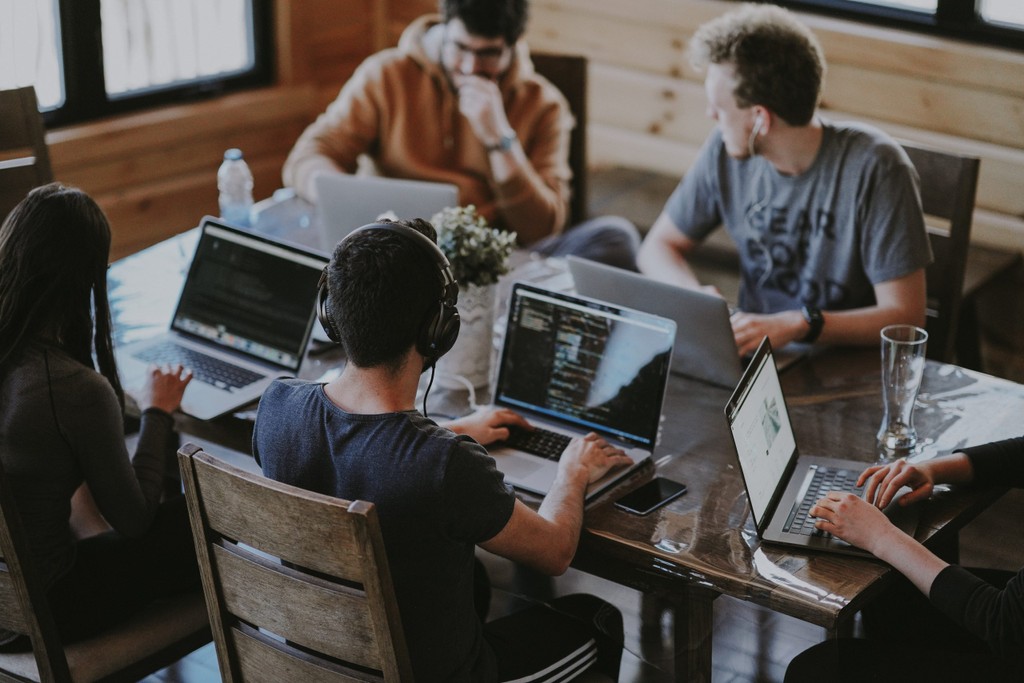Challenges of Student Inventors in Startups and New Businesses
As a student inventor, there will be more than course work, but what about the rest of the world? There is a growing need for innovative ideas and the opportunity to create new businesses is very real. Unfortunately, the COVID-19 crisis has made a number of challenges even more difficult. This article, discusses some of the resources and opportunities that are available to student inventors.
Opportunities
While launching a new company is an exciting and challenging task, a startup requires more than an incredibly bright idea. Startup executives need someone who will invest time and energy into growing the business, without sacrificing their day job. Student inventors and postdocs represent excellent candidates for this role. The fact that they can focus on building their business without giving up their day job means that the university and industry ecosystems are both equally important.
Many graduate students and university employees sign Intellectual Property Agreements to retain their rights to the intellectual property developed in their employment relationship with Penn State. If an inventor decides to bring their technology to market as a new business, they may seek to negotiate an opportunity to license the IP from Penn State. They must coordinate with the Office of Technology Management in order to do this. Once the IP is licensed or optioned, the inventor must stop working on their technology.
While not all students choose to launch their own companies, many are preparing for future occupations that do not exist today. This phenomenon has been recognised and various organizations and stakeholders are emerging with various programs to adequately prepare for the future. One such program is called GapSummit. This is a summit is run by students and aims to substantively discuss the pressing issues facing the biotech industry and foster innovation to address them. The summit selects 100 Leaders of tomorrow globally to attend the conference. It also recruits leaders from the global biotech community in order to inspire the next generation.
Challenges
One of the major challenges of student inventors is securing funding. Start-ups are especially vulnerable to economic uncertainty, and containment measures, as well as a drop in demand, can have a significant impact on revenues. Moreover, funding for short-term liquidity needs is crucial for the survival of these ventures. The government should consider supporting start-ups at every stage of the innovation process, including the early stages.
The challenges facing student inventors in startups and new businesses are multi-faceted. In the short-term, start-ups can introduce revolutionary innovations, such as remote patient monitoring and online education. These innovations are usually disruptive, but they can also lead to stronger economies. These start-ups often face funding challenges, as well as relationships with suppliers. Nevertheless, they can overcome these challenges, especially if they have an idea for a product or service that can benefit many people.
Oftentimes, student inventors have to start from scratch, which is no easy feat. Their startup often faces a variety of challenges, from fraud to investor dropouts, logistics issues, and even product problems. But if they work hard, the rewards are well worth the risks. With proper management, student inventors can start a business that makes a difference in the world. And if they do, they can have the same opportunities as those with more experience.
Resources
Inventing a new product isn’t easy, but there are resources to help you get started. A mentor can help you get your business off the ground by sharing their expertise and helping you make the right connections. Several organizations are dedicated to supporting student inventors and startup entrepreneurs. A student inventor can apply for a grant from these organizations to support their ventures. If you’re lucky enough to be able to get funding, you can pitch your idea to investors or mentors. The funds are available for any size business, so you can’t go wrong.
In order to obtain licenses or rights to your invention, you must first have a business plan and patent. After that, you must contact an intellectual property attorney to get the legal process started. The Oregon Clinical and Translational Research Institute (OCTRI) has a Commercialization Design Studio that can help you develop your business plan and proposal. They also provide feedback on critical review components and free advice. OCTRI also has policies on startups and new businesses, including those pertaining to intellectual property and creation of the company.
The Venture Center also helps entrepreneurs get their business ideas off the ground and help them become successful. The Center also offers workshops to students, faculty, and entrepreneurs on various topics that are relevant to their research. Many workshops are free and allow students to network with business and technology entrepreneurs. The center’s staff has real-world experience creating and running startups. It’s a great place to get started if you are an inventor who’s looking to turn your idea into a successful company.
COVID-19 crisis
The COVID-19 crisis for student inventors of startups and new businesses has created many opportunities and challenges for the entrepreneurial community. While the changes have limited the availability of capital for some entrepreneurs, there are still opportunities. VCs are increasingly willing to consider applications from companies that do not fall within their typical networks. In particular, start-ups have more resources and are able to offer a more flexible financial model.
In addition to the financial implications of the COVID crisis, the outbreak of COVID is likely to lead to persistent changes in consumer needs and habits. In the US, for example, the global financial crisis caused a decline in new business registrations, but there have been many innovative start-ups that emerged in the years afterward. Examples include Dropbox, Uber, Airbnb, Groupon, Pinterest, and Airbnb. Other examples include the SARS epidemic in 2003 and Alibaba’s Taobao website. During such times, start-ups often thrive, and can make use of new technologies that are available in the market.
The COVID-19 outbreak is a major challenge for the start-up ecosystem. However, the resulting effects are beneficial in the short-term. It may even help to create more opportunities for new businesses and innovation. Short-term challenges should be addressed. The right incentives must be provided to help start-ups succeed. By doing this, the government will limit the effects of COVID-19 on innovation and employment.
Impact on start-ups
A startup’s success often depends on the right team. The most important aspect of the team is experience. An experienced advisor can help guide the startup through all stages, including regulatory approval. These advisors can provide valuable insight and help the startup learn from failures. Student inventors are an excellent resource to find an experienced advisor. They may be able to provide invaluable guidance, which is often lacking for a startup.
The first step in the process is putting together a cohesive team. Choosing a group of people to join a start-up is a difficult decision, because it requires establishing expectations for everyone involved. The team must decide on the main driver of the new venture, and how to make each person feel involved. The driver typically includes the inventor in some capacity, including as an investor. However, the group must be flexible enough to adjust to changing circumstances.
University of North Carolina at Chapel Hill students and faculty are generating more IP-based startups than ever before. The university has more than $1.14 billion in research portfolio and is turning it into new products and services. And its startup ecosystem is making a difference in the world. With this growth, UNC is helping to support and nurture the next generation of innovative businesses. But more than a business incubator, UNC inventors are making a positive impact on society and enhancing the entrepreneurial culture at the University of North Carolina.
Business model canvas
Student inventors are an important part of startup and new business ecosystems. Their inventions may be novel, but commercialization requires business and scientific leadership. However, launching a business is not easy. Students may choose to remain in their university roles for a number of reasons, including time, passion, and expertise. However, many students are interested in commercializing their inventions and building startups. In order to successfully commercialize their innovations, student inventors must understand the difficulties associated with the process.
In most cases, startups will not have the resources to hire a full-time CEO or CTO. Therefore, it’s important to have a champion on the ground who can drive the startup to its potential. In this regard, students and post-docs involved in inventions are ideal candidates for such a role. Additionally, they are not likely to have to give up their career, which is an invaluable asset for the business.
However, even before a startup company is formally established, the work begins. A student inventor should dedicate time to a market-validation process to determine if the market exists for their proposed technology. This step will help them determine whether their technology will sell at a price that their target customers are willing to pay. In addition to the research phase, student inventors can participate in various programs at Penn State that aim to validate their market, including the TechCelerator boot camp and the NSF-funded iCorps program.
Leadership
The challenges of student inventors in startups and new businesses are not just about overcoming the technical aspects of creating a product. Leadership is a critical part of this process. While faculty researchers may leave their academic careers to pursue their entrepreneurial endeavors, a startup requires a team of people who are passionate about the product. This team of leaders must be fully focused on the project in order to achieve success.
Before creating an official business, potential student entrepreneurs must invest in a process called customer discovery. This process is essential to validate the demand for the product or service and to determine the price that target customers are willing to pay. Penn State has a number of programs that help students validate their idea in the market.
https://www.ycombinator.com/documents/
https://techcrunch.com/
https://www.uspto.gov/learning-and-resources/startup-resources
https://www.sba.gov/business-guide/plan-your-business/fund-your-business
https://hbr.org/1998/11/how-venture-capital-works
http://patentpc.com/
http://uspto.gov/
Startup And New Business Guide For California Inventor Patentable Invention
Sbdc Incubator Accelerator For Startup Founder In Delaware
Barrier For Female Patent Inventor
Graduate Student Inventors
Startup And New Business Guide For Ohio Inventors With Patentable Inventions


